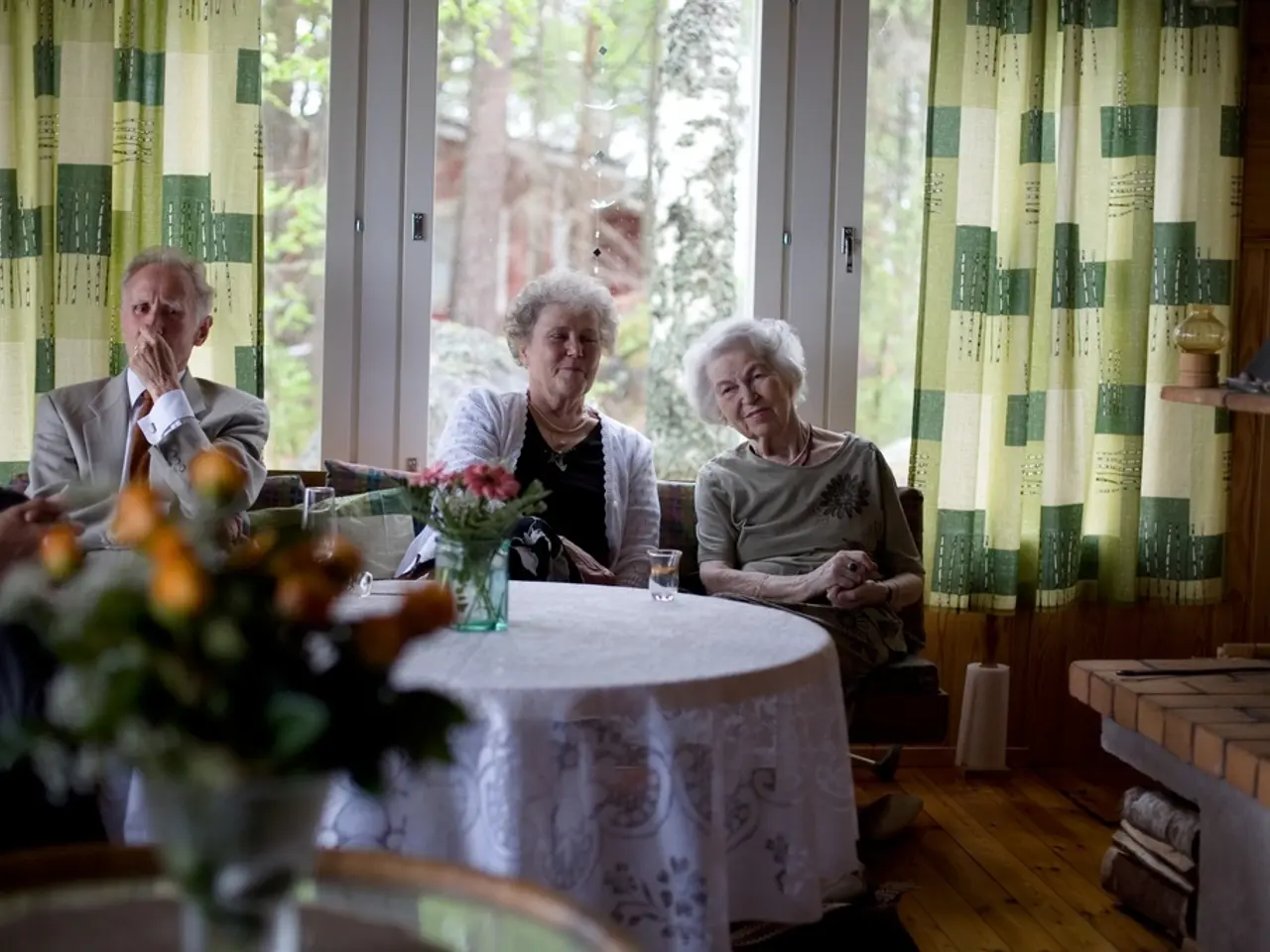Guidance for Elderly Travelers: Ensuring a Comfortable and Secure Journey!
================================================================
Traveling can be one of the most fulfilling experiences for seniors, offering mental stimulation, emotional fulfillment, and physical health benefits. However, it's essential to plan carefully to ensure safety and comfort. Here's a guide to help seniors prepare for a safe and enjoyable journey.
Destination Choices
Choosing the right destination is crucial for a senior's travel experience. Opt for destinations with senior-friendly accessibility and amenities, such as flat terrain, easy transportation options, and proximity to medical facilities. Research weather conditions and local health risks to ensure they align with your physical capabilities and health needs.
Consider joining senior travel clubs or small group tours geared toward older adults for companionship and built-in safety. These tours often provide expert guidance and social opportunities, enhancing safety and enjoyment.
Accommodations
Opt for lodgings that offer easy access features such as elevators, minimal stairs, mobility aids, and on-site medical support or nearby hospitals. Confirm that the accommodation can accommodate dietary restrictions and offers assistance if needed.
Packing Essentials
Pack light and smart. Carry multiple layers for varying climates, comfortable walking shoes, prescribed medications, chargers, and copies of important documents. Don't forget a list of emergency contacts and essential medical information. Carry a refillable water bottle and healthy snacks to maintain hydration and nutrition during travel.
Mobility Assistance
Verify the availability of mobility aids such as wheelchairs or scooters with travel operators and accommodations. Request special sleeping arrangements if needed. Plan frequent breaks during travel to prevent fatigue and reduce risks such as deep vein thrombosis (DVT).
Dietary Considerations
Inform travel providers and accommodations of any dietary restrictions or special nutritional needs in advance to ensure proper meals are available. Maintain a balanced diet and stay hydrated throughout the journey to support health.
Travel Insurance
Obtain comprehensive travel insurance that covers trip cancellations, medical emergencies, evacuation, and travel delays, especially with medical benefits tailored for seniors. Carry all insurance documents physically and electronically for quick access during emergencies.
Communication Tools
Keep a list of emergency contacts including family, doctors, and local emergency services. Use both physical and digital copies of important documentation and consider tools such as cloud storage or email backups for easy access to critical information. Carry a charged mobile phone with international roaming or a local SIM card for reliable communication.
By thoroughly planning in these areas, seniors can greatly increase their travel safety, comfort, and enjoyment, leading to rewarding travel experiences. Use apps like Google Maps, ride-share services, and translator apps to help seniors feel more in control and reduce confusion.
Remember to layer up with light, compact clothing for unpredictable climates. High-sodium or high-fat meals can trigger health issues for seniors, so encourage them to carry a refillable water bottle and take breaks for hydration.
A basic international cell plan or portable Wi-Fi device keeps seniors connected while traveling. Request mobility assistance from airlines and train operators, and call ahead to ensure they can accommodate. Travel insurance is essential when an older traveler is involved, especially plans that cover medical emergencies, lost medications, and trip interruptions caused by health issues. Seniors often have specific dietary needs or need to be extra careful about hydration.
With careful planning and preparation, seniors can embark on incredible travel adventures, making memories that will last a lifetime. Happy travels!
- To enhance their travel experience, seniors might consider exploring health-and-wellness destinations that offer a focus on wellness, such as retreats, spa resorts, or senior-centric fitness programs.
- When it comes to selecting accommodations, opting for lodgings with science-backed amenities, like specific air quality filters or color therapy in the rooms, could contribute to a healthier and more restful stay for seniors, promoting overall well-being.




